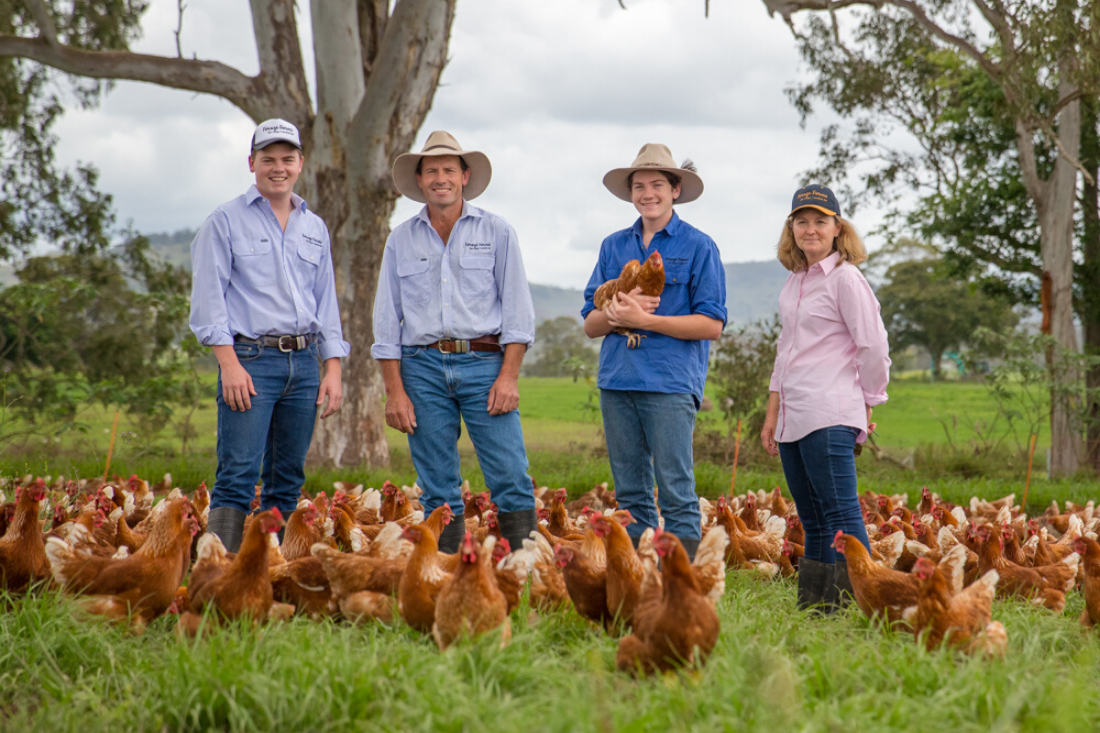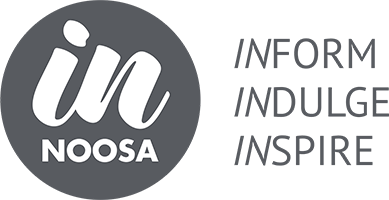
Happy & Healthy Farming
In his never-ending quest to unearth the region’s best producers, Matt Golinski discovers a third-generation farming family who are champions of the global Slow Food philosophy.
Spend some time walking through the paddocks at Forage Farm, listening to Stuart Andrews talking about his animals and his land, and you know you’re not talking to any ordinary farmer. The Andrews family’s entire philosophy of farming is based on the idea that they aren’t growing chickens, sheep or pigs – they’re growing soil.
The story behind Forage Farms begins in the beautiful Bylong Valley, where three generations of the Andrews family have lived on ‘Tarwyn Park’, the celebrated home of Natural Sequence Farming. For more than 40 years the property was dedicated to understanding, practicing and teaching the methods of land rehabilitation.
Stuart’s father, Peter, pioneered the internationally-recognised Natural Sequence Farming technique of regenerative agriculture and land care that relies on three basic steps:
- Rehabilitation – using the livestock to disturb and aerate the soil surface, add nutrients and increase carbon storage.
- Regeneration – rotating the animals through the pastures to increase diversity of plant life and promote increased growth.
- Rehydration – constructing contours on the land to catch and retain water.
And as a way of consolidating their knowledge, Stuart, his wife Megan, and their two sons Hamish and Lachlan are transforming their property ‘Riverside’ in Kybong, just south of Gympie, from tired dairy country into a flourishing, productive, and most importantly, sustainable piece of land.
Pastured free-range chickens live out in the open, protected by loyal Maremma dogs, and the only time they’re inside is when they pop into their chicken tractors to lay an egg. The rest of the time they are free to have dust baths and forage on bugs and weeds.
The tractors are moved to a new patch of the field each week to ensure they always have plenty of greens in their diet, and all the goodness they leave behind in the form of rich manure turns that area into a lush sea of bright green within weeks.
It can be hard to know if what you’re buying on the supermarket shelves is truly free-range. The guidelines state that to be certified there must be no more than 10,000 chickens per hectare. Forage Farms stock 400 per hectare, so you can be sure that their chooks have plenty of space!
‘Pastured Free Range’ means the whole flock is moved regularly rather than being housed in a large shed on a big block of land. Stuart explained to me that chickens won’t stray too far from home, so once an area is eaten out around a structure, they aren’t getting the benefits of having hectares of foliage around them.
Likewise, their pigs and sheep have plenty of room to exercise and are moved to fresh pasture regularly to compliment the work that the chickens have done in improving the land.
With more than 6,000 laying hens on the property, the Andrews family has their work cut out for them – collecting, cleaning, stamping, grading and packing around 375 dozen eggs each day and then personally delivering them all over the Sunshine Coast, Brisbane, the Gold Coast and even into New South Wales.
Their eggs are stocked in most IGA supermarkets and their pork and lamb are available either direct from the farm or in selected butchers. They have a list of stockists and the restaurants who support them on their website www.foragefarms.com.au.



